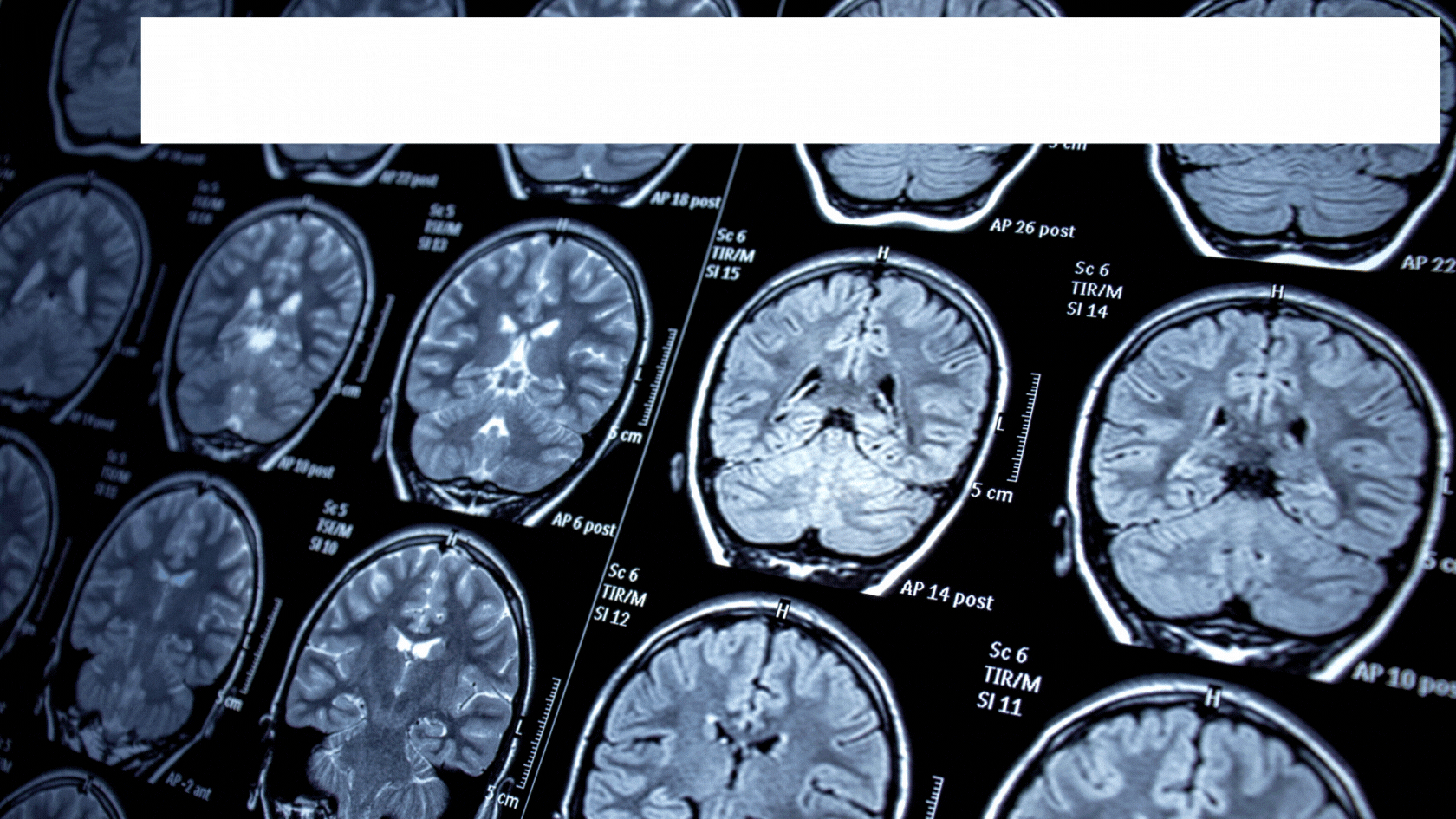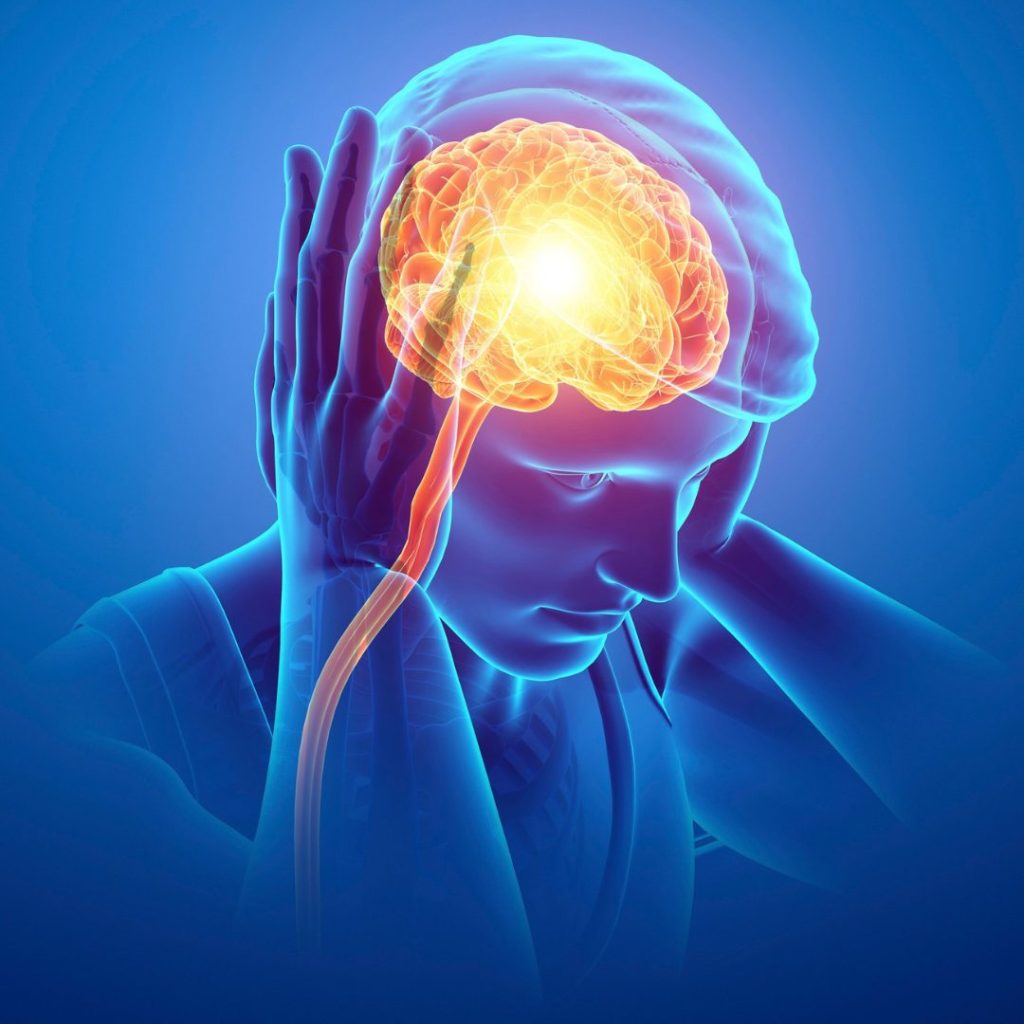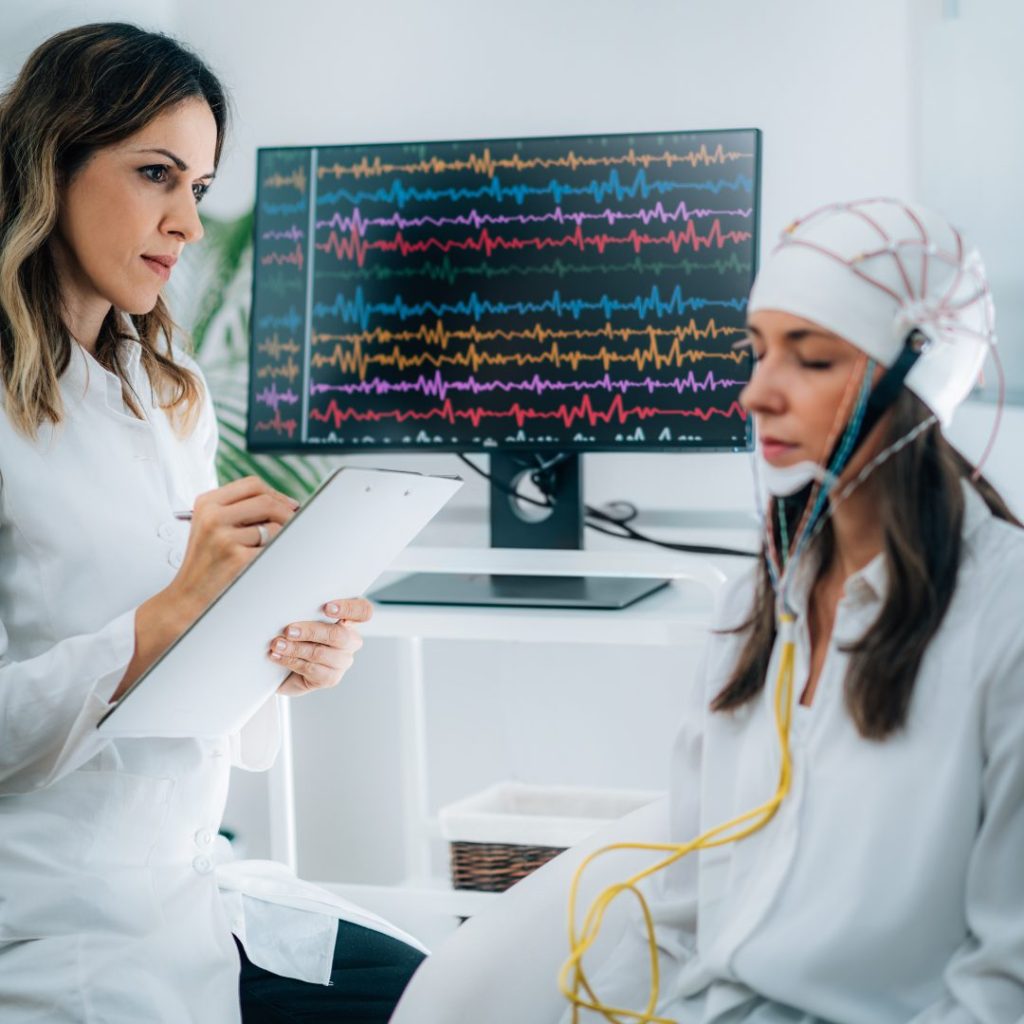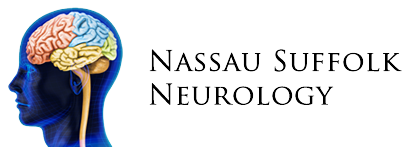
Welcome to Nassau Suffolk Neurology, where we prioritize neurological health with cutting-edge testing and compassionate care. Our experienced team is dedicated to accurately diagnosing and managing various neurological conditions. Through advanced testing methods, including EEGs, EMGs, and neuropsychological assessments, we ensure that each patient receives a comprehensive evaluation tailored to their unique needs. Explore our services to learn how we can help you achieve optimal brain health and enhance your quality of life.
The Importance of Neurological Testing for Cognitive Health in Older Adults
As we age, changes in memory, attention, and thinking skills can be common—but not always normal. In some cases, these changes may be early signs of a neurological condition that requires professional evaluation. That’s where neurological testing on Long Island plays a vital role in maintaining long-term cognitive health. At Nassau Suffolk Neurology, we specialize in helping older adults better understand their brain health through a range of diagnostic services and neuropsychological evaluations.
Why Neurological Testing Matters for Seniors
Cognitive decline in older adults can be caused by a variety of conditions, from mild cognitive impairment (MCI) to Alzheimer’s disease, vascular dementia, or Parkinson’s-related cognitive changes. Early and accurate diagnosis is crucial for slowing disease progression, enhancing quality of life, and identifying effective treatment options or support.
Through comprehensive neurological testing on Long Island, our board-certified neurologists and neuropsychologists help identify subtle or significant changes in brain function, enabling patients and their families to make informed decisions about their care.

In-Office Neurological & Neuropsychological Tests
At our Babylon office, Nassau Suffolk Neurology provides state-of-the-art, non-invasive diagnostic testing, specifically designed to assess cognitive and neurological function in older adults. These include:
- Neuropsychological Evaluation: This in-depth assessment measures cognitive abilities, including memory, attention, language, and problem-solving. It is a cornerstone for diagnosing Alzheimer’s disease, dementia, mild cognitive impairment, and other neurobehavioral disorders. These tests also help detect changes following stroke or brain injury.
- EMG/NCV (Electromyography & Nerve Conduction Velocity): EMG and NCV studies help detect nerve and muscle dysfunction. In older adults, these tests can help evaluate symptoms such as numbness, muscle weakness, and chronic pain, which are often related to neuropathy or spinal conditions.
- EEG (Electroencephalogram): Used to monitor brainwave activity, an EEG can detect seizure activity, dementia-related abnormalities, and changes in brain function due to degenerative conditions.
- BAER (Brain Auditory Evoked Response): This test examines how sound travels from the ear to the brain. It can detect hearing-related neurological problems, often associated with aging and conditions like multiple sclerosis or brainstem dysfunction.
- VER (Visually Evoked Potential): Used to evaluate the visual processing pathways in the brain, VER helps assess vision-related symptoms, including blurry vision or visual hallucinations, which can sometimes be seen in neurological disorders.
- Balance Testing: For older adults experiencing dizziness, instability, or falls, this test evaluates the vestibular system—the part of the inner ear and brain responsible for balance and coordination.
- ANS Study (Autonomic Nervous System): This test evaluates the body’s automatic functions, including heart rate and blood pressure. ANS dysfunction can be linked to diabetes, Parkinson’s disease, and other neurodegenerative conditions.
Common Conditions We Diagnose in Older Adults
Our practice is experienced in diagnosing and managing a wide range of neurological issues affecting seniors, including:
- Mild cognitive impairment (MCI)
- Alzheimer’s disease and other dementias
- Stroke and post-stroke cognitive changes
- Parkinson’s disease
- Peripheral neuropathy
- Seizure disorders
- Traumatic brain injury (TBI)
- Balance and coordination disorders
Schedule a Neurological Evaluation Today
If you or a loved one is experiencing memory problems, confusion, or changes in thinking, don’t wait. Early detection can significantly impact treatment options and quality of life. Conveniently located in Babylon, NY, we provide trusted, expert neurological testing on Long Island for individuals and families seeking clarity and support. Call us today or visit our website to schedule a consultation.
Top Neurological Disorders Diagnosed Through Testing in Long Island
Neurological disorders can have a profound impact on daily life, affecting everything from memory and movement to speech and coordination. When left undiagnosed, these conditions may worsen over time. Thankfully, with the help of advanced neurological testing, many disorders can be detected early, enabling better treatment outcomes and an improved quality of life.
At Nassau Suffolk Neurology, we specialize in diagnosing and managing a wide range of neurological disorders using cutting-edge tools and a patient-first approach. Below are some of the most common conditions we identify through neurological testing on Long Island.

Alzheimer’s Disease and Dementia
Early signs of Alzheimer’s and other dementias often include memory loss, confusion, and difficulty performing everyday tasks. Through neuropsychological evaluations, cognitive testing, and imaging techniques such as MRI scans, we can detect early brain changes and initiate timely interventions to manage symptoms and slow disease progression.
Epilepsy
Characterized by recurring seizures, epilepsy can significantly affect daily life and safety. At Nassau Suffolk Neurology, we use EEG (electroencephalogram) testing to monitor electrical brain activity and identify abnormal patterns consistent with seizure disorders. Accurate diagnosis is essential for developing an effective treatment plan.
Parkinson’s Disease
Parkinson’s disease primarily affects movement but can also lead to cognitive decline. Our diagnostic approach includes neurological exams, neuroimaging, and ANS (Autonomic Nervous System) studies to track symptoms such as tremors, stiffness, and non-motor changes. Early diagnosis is crucial for managing symptoms and enhancing function.
Multiple Sclerosis (MS)
MS is a chronic autoimmune condition that affects the brain and spinal cord, often resulting in fatigue, numbness, and visual disturbances. We use a combination of MRI imaging, visual evoked potentials (VER), and neurological exams to detect lesions and confirm a diagnosis. Early treatment helps slow disease progression.
Stroke and Post-Stroke Complications
A stroke occurs when blood flow to the brain is disrupted, resulting in a sudden loss of function. Immediate imaging through CT or MRI scans is crucial for diagnosis. We also provide follow-up neurological testing to assess post-stroke issues such as memory loss, speech difficulties, and motor deficits, guiding your path to recovery.
Comprehensive Neurological Testing On Long Island at Nassau Suffolk Neurology
If you or a loved one is experiencing symptoms such as memory loss, tremors, chronic headaches, or numbness, don’t wait to seek help. Nassau Suffolk Neurology is proud to offer expert neurological testing on Long Island with a focus on early diagnosis, compassionate care, and personalized treatment plans. Contact us today to schedule a consultation and take the first step toward better brain health.
How Long Island Neurologists Use EEGs to Diagnose and Treat Epilepsy
Epilepsy is a neurological disorder that disrupts normal brain function and causes recurring seizures. Because seizures can vary in type and frequency, diagnosing epilepsy often requires specialized tools. One of the most effective diagnostic methods available is the electroencephalogram (EEG)—a non-invasive test that measures the brain’s electrical activity.
At Nassau Suffolk Neurology in Babylon, NY, EEG testing is a cornerstone of our approach to diagnosing and managing epilepsy. As leaders in neurological testing on Long Island, we provide accurate and timely assessments that help patients find the right treatment path.
What Is an EEG?
An EEG (electroencephalogram) records the brain’s electrical signals using small electrodes placed on the scalp. This painless, non-invasive procedure captures brain wave activity, helping neurologists detect irregularities that may signal seizure disorders or other neurological abnormalities.
Because seizures often happen without warning, EEGs are essential for revealing what’s occurring in the brain during both seizure episodes and periods of rest or regular activity.

How EEGs Help Diagnose Epilepsy
EEG testing is a critical tool in identifying abnormal patterns—such as spikes or sharp waves—that are commonly associated with epilepsy. At Nassau Suffolk Neurology, our team uses EEGs in several strategic ways to improve diagnostic accuracy:
-
- Baseline Brain Activity: EEG recordings are taken while the patient is awake and asleep to provide a broad view of brain function across different states. This helps capture both typical and abnormal patterns.
- Activation Techniques: To increase the likelihood of detecting abnormalities, patients may be asked to perform tasks such as hyperventilation or closing their eyes, or to enter light sleep during the test. These methods can help trigger the electrical changes linked to seizure activity.
- Long-Term Monitoring: For cases where a standard EEG doesn’t capture enough data, extended EEG monitoring—either in a hospital or at home—can be used. This allows neurologists to observe brain activity over hours or days, especially during actual seizure events.
Using EEGs to Guide Epilepsy Treatment
The role of EEG testing doesn’t end with diagnosis. It also plays a significant part in treatment planning and ongoing care:
- Evaluating Medication Effectiveness: Repeat EEGs can determine how well anti-seizure medications are controlling abnormal brain activity.
- Planning for Surgery: For patients who don’t respond to medication, EEG results help pinpoint the specific brain area causing seizures—an essential step in determining whether surgical intervention is possible.
Epilepsy Care and Neurological Testing On Long Island At Nassau Suffolk Neurology
At Nassau Suffolk Neurology, our experienced neurologists use EEGs as a key part of our neurological testing on Long Island. If you or a loved one is experiencing seizures, contact us to schedule an evaluation and learn more about how EEGs can help guide your treatment plan.

 The nervous system, including the brain and spinal cord, is particularly vulnerable during traumatic events such as car accidents. Injuries to these structures can lead to a range of neurological conditions like concussions, movement disorders, and cognitive impairments. Symptoms may include headaches, dizziness, numbness, migraine, and difficulties with memory or concentration. From a patient standpoint, early detection of abnormalities is critical to preventing long-term disability.
The nervous system, including the brain and spinal cord, is particularly vulnerable during traumatic events such as car accidents. Injuries to these structures can lead to a range of neurological conditions like concussions, movement disorders, and cognitive impairments. Symptoms may include headaches, dizziness, numbness, migraine, and difficulties with memory or concentration. From a patient standpoint, early detection of abnormalities is critical to preventing long-term disability.